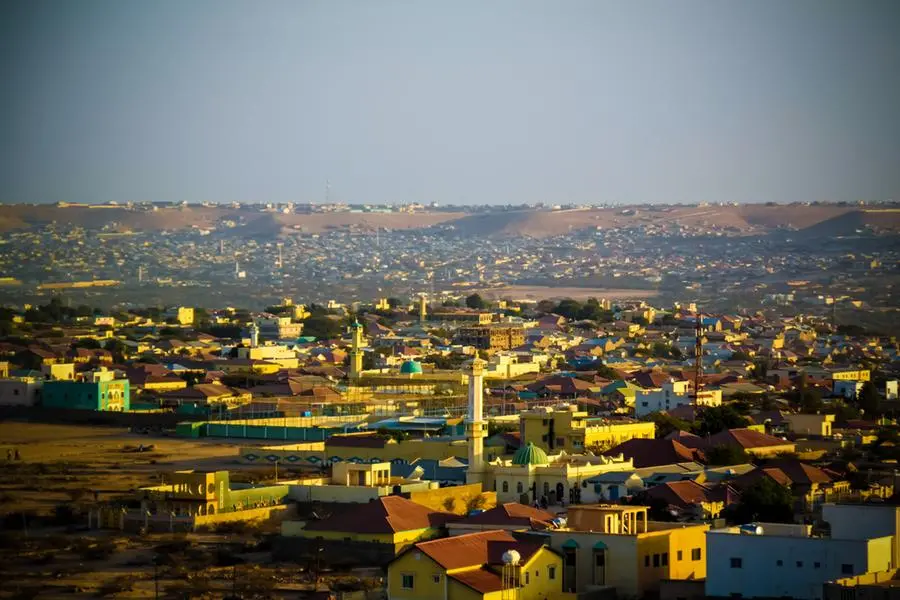PHOTO
Somalia’s President Hassan Sheikh Mohamud has defended Mogadishu’s deal with Türkiye on oil and gas exploration, which has caused outrage in the country after it was leaked to the public for allegedly signing off 90 percent of the revenues to Ankara.
The agreement signed last year, which was circulated widely last month allows Mogadishu to cede its petroleum operations to the government of Türkiye, signalling Ankara’s growing dominance on the Somalian economy, including running its main port and airport in Mogadishu and military bases.
Details of the agreement show that Türkiye will receive up to 90 percent of the revenue from oil and gas extracted from Somalia’s territorial waters.
Read: Turkey to send navy to Somalia after agreeing oil and gas searchSomalia on its part, will own and be entitled to a royalty, in cash or in kind of up to five percent of production of all petroleum produced and saved from the contract area.“The Federal Republic of Somalia hereby grants to the Turkish Designated Entity the sole and exclusive right to conduct Petroleum Operations within and with respect to the Contract Area,” the agreement states.“In order to exercise such right, the Federal Government (Somalia) shall provide the pertinent technical data, which is already available or may become available from time to time, at no cost to the Turkish designated entity and shall conclude a production sharing agreement with the Turkish designated entity for each contract area that the Turkish designated entity deems appropriate.”Under the deal the contractor shall be entitled to recover the petroleum costs incurred by taking and separately disposing of an amount equal in value to a maximum of 90 percent of crude oil and 90 percent of natural gas produced during that fiscal year and not used in petroleum operations after the payment of all royalties due to the government.
The deal was signed in Istanbul by ex-Somali Petroleum Minister Abdirizak Omar Mohamed and his Turkish Energy Minister Alparslan Bayraktar on March 7, 2024.
Turkish Petroleum Corporation (TPAO) has been contracted to conduct exploration and production operations.
In the circuited video-taped address, President Mohamud termed the deal a mutually beneficial agreement that represents shared interests.“This is the first time in history that Somalia’s oil and gas reserves are being properly explored. You can’t discount the first-mover advantage. With Turkey’s support, Somalia aims to be a country different from how the world perceives it,” the Somali leader said.
Somalia’s state minister of Foreign Affairs, Ali Omar, termed this the start of bigger business, as the deal covers only three blocks that form a small section of Somalia’s offshore potential, believed to span 216 blocks.
The Istanbul deal sparked uproar in Somalia after the Nordic Monitor, a Sweden-based investigative outlet known for publishing leaked documents on Turkish foreign policy and intelligence, released a report in late April.
Abdisaid Muse Ali, a former Somalia national security adviser and chief of staff, criticised the hydrocarbon deal, saying it “violates Somalia’s own Petroleum Law. No competitive bidding. No independent regulator involved. No consultation with federal states. No public debate. This is not just bad policy --it’s illegal.”But Anisa Abdulkadir, a Mogadishu-based economist, said that Somalia cannot afford the huge initial cost of surveying, exploring and exploiting hydrocarbon resources especially in offshore waters, so there is no harm in contracting that.“It is normal practice for countries like Somalia that lack the capital and technical capacity to engage a contractor like TPAO,” Abdulkadir told The EastAfrican.“Once the industry is developed, the country may establish its own entity, resources and capacity to skip cost-recovery model,” she added, agreeing with Somalia’s current investment option.
© Copyright 2022 Nation Media Group. All Rights Reserved. Provided by SyndiGate Media Inc. (Syndigate.info).




















